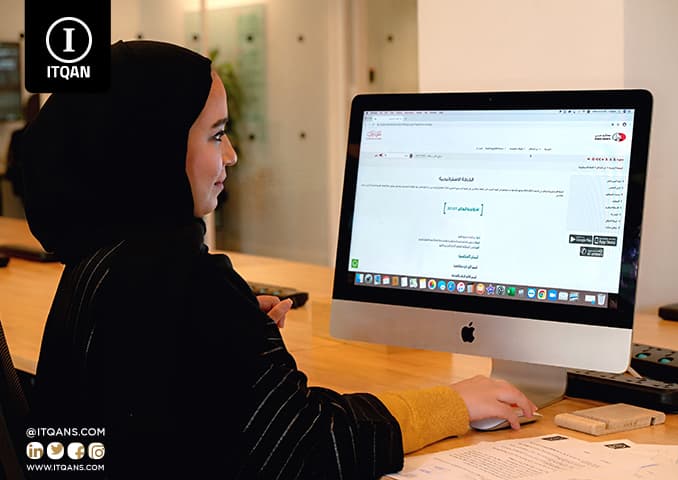New investors in Dubai want to know how to establish companies in Dubai because the economy of the United Arab Emirates was initially based on trade, on extracting fish and pearls from the sea and on sales, but when a change occurred and the United Arab Emirates was distinguished by its high economy.
Many investors have directed their attention to the United Arab Emirates due to the high economy, as the United Arab Emirates has become one of the richest Arab countries whose economy depends mainly on oil instead of the sea and its products, which has attracted many foreigners and visitors. This contributes to the success of all the business projects they create. As a result, many people tend to invest their money in it and start new business ventures to increase their income.
However, several conditions are needed to start a business in the UAE, including the importance of establishing and owning a business. Our company works to help you start and start a business, as our company is one of the best companies working in the field of business establishment and services for entrepreneurs. Follow this comprehensive article in terms of the steps and procedures necessary to establish companies in Dubai .

جدول المحتوى
ToggleConditions for establishing companies in Dubai
Dubai is considered one of the most prominent global destinations for establishing companies thanks to its thriving economic environment and advanced infrastructure. However, there are a set of conditions and requirements that must be adhered to to ensure the establishment of a successful and legal company in Dubai. In this section, we will discuss the basic terms which include legal requirements, licenses and documentation, and financial terms.
Legal requirements
The process of setting up companies in Dubai begins with complying with the legal requirements set by the government. New businesses must comply with local laws and regulations, which include:
- Choosing a company structure: You must determine the type of company suitable for the commercial activity, whether it is a free zone, a limited liability company, or a joint stock company.
- Trade names: The company’s trade name must be registered and government approval must be obtained. The trade name must be unique and not conflict with other registered names.
- Partners and shareholders: Detailed information must be provided about the partners and shareholders, including their identities and the percentages of their shares in the company.
Licenses and documents
To begin practicing commercial activity, you must obtain the necessary licenses and documents from the competent authorities. This process includes:
- Activity license: Every commercial activity requires a special license issued by the Department of Economic Development or other competent authorities.
- Legal documentation: Legal contracts and necessary documents must be authenticated by the relevant authorities such as the notary public and government departments.
- Articles of Association: The company’s Articles of Association must be prepared and notarized, which outlines all the legal and commercial aspects of the company.
Financial terms
There are certain financial conditions that businesses must adhere to to ensure they are properly established. These conditions include:
- Capital: Establishing some types of companies requires a minimum amount of registered capital, which varies depending on the type of company and activity.
- Government fees: You must pay the government fees required to register the company and obtain the necessary licenses.
- Financial guarantees: Some businesses may require additional financial guarantees such as insurance or bank deposits.
Costs of establishing companies in Dubai
The costs of establishing a company in Dubai are one of the important factors that entrepreneurs and investors must take into consideration when planning to start a business in this vital city. These costs can be divided into several main aspects that help in understanding the full picture of the expenses required.
- Registration and licensing fees: Registration and licensing fees are among the first costs that an investor will bear when establishing a company in Dubai. These fees include the costs of obtaining a commercial license from the Department of Economic Development in Dubai or from one of the free zones. Costs vary based on the type of business and type of license required, and an annual fee must be paid to renew the license. In addition, there may be additional fees for obtaining the necessary approvals and permits from various government agencies.
- Ongoing Operating Costs: Ongoing operating costs include the expenses a company incurs to maintain its daily business operations. These costs include office or commercial space rent, employee salaries, and utility bills such as electricity, water, and communications. Companies must also pay health and social insurance fees for workers, which are legal requirements imposed by the UAE government. In addition, some business activities may require additional costs such as purchasing raw materials or products.
- Additional Expenses: When establishing a company in Dubai, investors must also be prepared to bear some additional expenses that may arise during and after the incorporation process. These expenses include legal and accounting consulting costs, which may be necessary to ensure compliance with local laws and regulations. In addition, there may be additional fees for obtaining visas and residence permits for foreign employees and employers. Additional expenses may also include marketing and advertising costs to attract customers and promote the brand in the local market.
The importance of establishing companies in Dubai
Dubai is considered one of the most prominent global destinations for establishing companies, thanks to a number of factors that make it an ideal environment for business. Below we highlight some of the main reasons that highlight the importance of establishing companies in Dubai:
Strategic location
Dubai is located in the heart of the Middle East and enjoys a distinct geographical location that makes it a connecting point between East and West. This strategic location gives companies the ability to access Asian, African and European markets easily, which contributes to business expansion and increased commercial opportunities. In addition, Dubai has a developed infrastructure that includes world-class airports and advanced seaports, facilitating international transportation and shipping operations.
Prosperous economic environment
Dubai is characterized by a prosperous and stable economic environment, and is one of the fastest growing economies in the world. Dubai adopts flexible and innovative economic policies aimed at attracting foreign investments and enhancing the business environment. The emirate provides a variety of investment opportunities in various sectors such as tourism, real estate, technology, and financial services, giving companies an ideal environment for growth and expansion.
Government support
The Dubai government provides significant support for establishing and operating companies by providing multiple incentives and facilities. These incentives include tax breaks, advanced infrastructure, and fast and efficient government services. The government is also working to create an encouraging regulatory environment characterized by transparency and fairness, which increases the confidence of investors and companies in the local market.
Overall, it can be said that setting up a company in Dubai brings many benefits and advantages that make it an attractive option for entrepreneurs and investors from all over the world.

Types of companies in the Emirates
Steps to establish companies in Dubai
Establishing a company in Dubai requires following specific steps to ensure compliance with all local laws and regulations. These steps include:
- Choosing the type of company: The first step in establishing a company in Dubai is to determine the type of company you want to establish. Dubai offers many options that include limited liability companies (LLC), foreign branches, and free zones. Choosing the right type depends on the nature of your business and your capital structure.
- Submitting applications: After determining the type of company, the next step is to submit an application for incorporation to the competent authorities. This requires filling out certain forms and submitting a set of documents, such as passports for shareholders and directors, a business plan, and articles of incorporation. These applications are submitted to the Dubai Department of Economic Development or to the competent authority in the free zone you have chosen.
- Obtaining Licenses: Once applications are submitted and approved, the necessary licenses must be obtained to begin work. This includes a trade licence, municipal licence, and any special licenses related to your specific business. Requirements for licenses can vary based on the type of activity and location.
- Opening a bank account: After obtaining the licenses, the next step is to open a bank account for the company. This account is essential for money management and daily financial operations. Banks in Dubai require certain documents such as a trade license, articles of incorporation, and personal identification of shareholders and directors.
- Renting an office or commercial location: According to legal requirements, the company must have a specific address in Dubai. Therefore, a suitable office or commercial location that meets all legal and regulatory conditions must be rented.
- Registering the company in government departments: The last step is to register the company with various government departments, such as the Ministry of Labor and Social Insurance, to regulate employee matters and ensure compliance with labor laws. By carefully following these steps, entrepreneurs can set up their companies in Dubai smoothly and efficiently, allowing them to take advantage of the great business opportunities this global city has to offer.
In conclusion, it can be said that establishing companies in Dubai represents a golden opportunity for investors and entrepreneurs from all over the world. Thanks to its distinguished strategic location, thriving economic environment, and broad government support, Dubai has become a global center for business and trade. However, investors should understand the legal and financial terms and requirements, as well as the costs involved in establishing and operating businesses, to achieve sustainable success.
By adhering to legal requirements, obtaining the necessary licenses, and bearing financial costs wisely, new businesses can take advantage of the many opportunities available in Dubai. Carefully following the steps for establishing a company, from choosing the appropriate type of company, submitting applications, to obtaining licenses, is a strong foundation for starting a successful and prosperous business.
Ultimately, establishing a company in Dubai is a promising future investment that contributes to strengthening the local economy, provides new job opportunities, and enhances Dubai’s position as a global center for innovation and business growth. Therefore, every aspiring investor and entrepreneurs should seriously consider this opportunity and work hard to achieve their ambitions and aspirations in this promising market.
Frequently asked questions about establishing companies in Dubai
Are there any restrictions on the business activities I can do in Dubai?
Yes, there are restrictions on some business activities that require special licenses or approvals from regulatory authorities.
What are the main advantages of setting up a company in Dubai?
Dubai provides a distinguished business environment that includes tax exemptions, easy access to global markets, advanced infrastructure, and diverse investment opportunities.
What are the costs associated with setting up a company in Dubai?
Costs vary based on company type and location. Costs usually include registration fees, the cost of obtaining a license, office costs, and any other additional expenses.
Do I need to have a local partner to set up a company in Dubai?
In limited liability companies (LLC) operating in non-free zones, a local partner is usually required. But in free zones, foreigners can establish companies with 100% ownership without the need for a local partner.


















